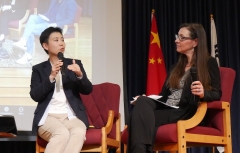Eight Key Insights from “AI and the Future of Translation and Interpretation”
| by Sierra Abukins
Over 8,000 people from across the world recently tuned in for a conversation with top employers, academics, and practitioners on how the field is changing and what’s next.



